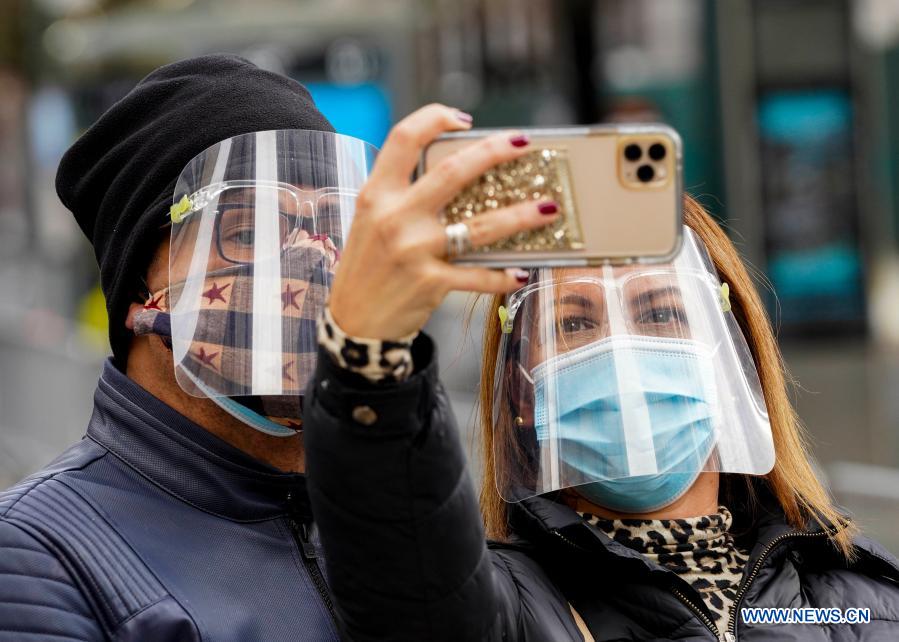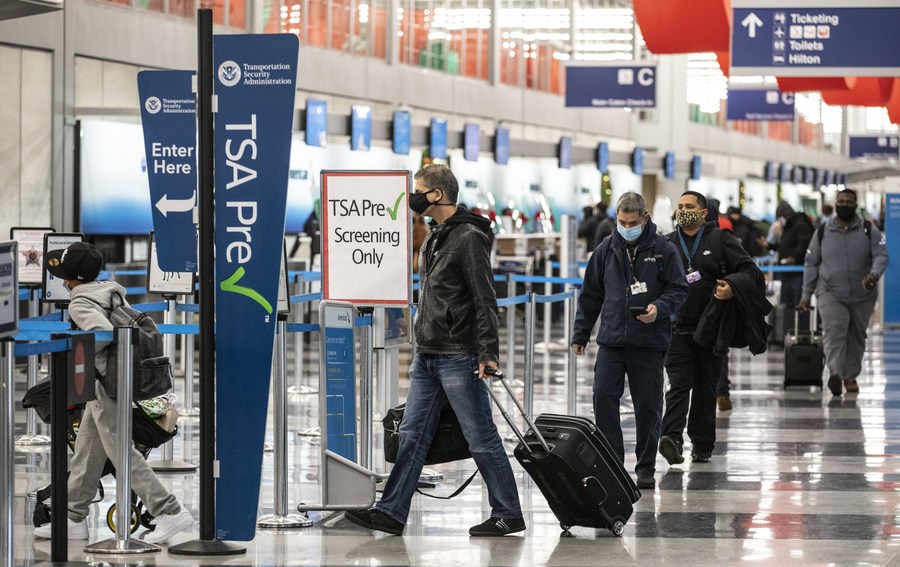Thanksgiving in the coronavirus era
- By Mitchell Blatt
 0 Comment(s)
0 Comment(s) Print
Print E-mail China.org.cn, November 27, 2020
E-mail China.org.cn, November 27, 2020

Americans are coming together to celebrate Thanksgiving at a time when their country's COVID-19 pandemic is worse than it has ever been.
With over 100,000 new cases daily since Nov. 4, and almost 200,000 the week before Thanksgiving, hospitalizations are the highest they've ever been. The Centers for Disease Control and Prevention (CDC) advised the public to stay home and limit the size of their gatherings.
Americans have listened – to a degree. Thanksgiving parties are smaller than they were last year, and yet much larger than they should be.
About three million Americans took to the airports the weekend before Thanksgiving, according to the Transportation Security Administration (TSA), less than half as many as last year. However, one million Americans flying in a single day is still higher than any time since the pandemic reached the U.S.
Evidence about the likelihood of onboard spread of the coronavirus is mixed, but the virus is much more likely to spread when people are packed close together, and with airplanes being full, anyone sitting next to an infected passenger is at risk.
Airport terminals are also high-risk areas, because ventilation is poor and some Americans refuse to wear masks while inside. Traveling for Thanksgiving by car is safer in terms of preventing the virus.
Then, there's the party itself. Family members aren't immune from catching coronavirus from their cousins. According to the COVID-19 Event Risk Assessment Planning Tool created by the Georgia Institute of Technology, there's an 80% risk of someone having coronavirus at a 10-person Thanksgiving Party in the Midwestern United States and a 20-40% risk in most of the other states.
You can be sure that when the beers and the birds come out, there won't be any precautions taken to prevent the spread should someone have it. Thanksgiving is not a holiday that can be celebrated with masks. It's all about eating and drinking.
This doesn't mean Americans can't or shouldn't celebrate Thanksgiving this year. But they shouldn't get together with their aunts, uncles, extended family, and friends, and certainly not with grandparents, who are at highest risk of life-threatening symptoms.
Instead, people should celebrate with immediate family if they know these have not been engaging in high risk activities. A meal with brothers and sisters who live in the same city and do not need to fly to their destination would not be as dangerous.

Yet, if only half of Americans curtail their Thanksgiving celebrations, it will not be enough to stop the inevitable spike that is going to happen after Thanksgiving. Coronavirus is not just an individual threat, it's a public health issue.
Those people who risk their own life to eat a turkey with their friends and cousins are risking the nation's health and well-being. They are infecting others. They are causing the hospitals to become unable to cope. They are causing cancer victims to have treatment delayed. They are causing restaurant workers to be fired.
Already, the outbreak in the U.S. is out of control before the parties even begin. It will only get worse when the Christmas and New Year celebrations come around in December.
In China and South Korea, which both had much more successful responses to coronavirus, people curtailed their holiday gatherings. Chinese people did limit their Spring Festival dinners after they knew about the seriousness of the epidemic.
Instead of inviting neighbors, as is traditional, they limited dinners to their immediate family. That's what Americans should do this Thanksgiving.
In South Korea, the government discouraged people from going to their hometown for Chuseok celebration (held at the time of Mid-Autumn Festival). A survey found that 75% of Seoul residents stayed home during Chuseok.
This is what we must do this year and into next spring and until the pandemic ends. The news that some vaccines are nearing approval for international use is welcome. If widely distributed, transmissions could decrease. People will still have to wear masks and take social distancing precautions, which many Americans and Europeans will give up on after the vaccines are distributed, but that's another story.
Hopefully we can get together with everyone next fall. Until then, if we want to survive until next fall, and if we want our country to be safe for celebrations next year, we'd better not do so this year.
Mitchell Blatt is a columnist with China.org.cn. For more information please visit:
http://91dzs.com/opinion/MitchellBlatt.htm
Opinion articles reflect the views of their authors, not necessarily those of China.org.cn.
If you would like to contribute, please contact us at opinion@china.org.cn.





